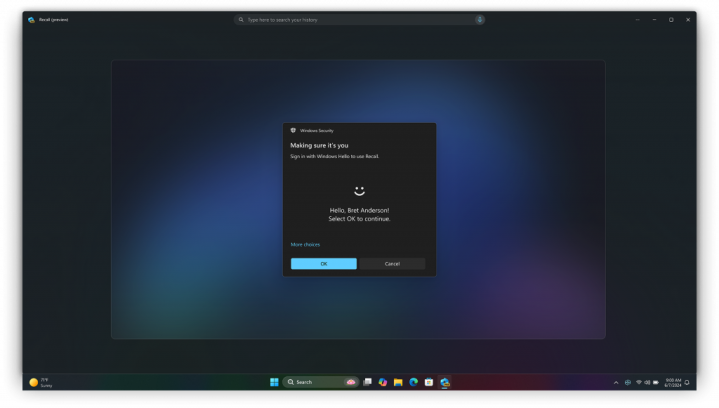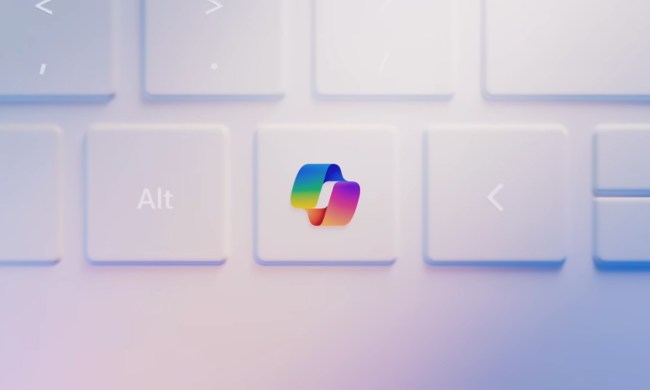
Microsoft has confirmed in a blog update that Recall hasn’t been abandoned and will be ready for Windows Insider testing in October. The announcement comes after the company was forced to rethink its AI-powered automatic screenshot-taking feature just before the first Copilot+ PCs launched due to significant security concerns.
The idea behind Recall is to help people search for things they’ve seen on their PC. Say you’re researching a topic, and you have multiple tabs open on different sources. Sometime in the past few hours, you know you read the exact fact you needed, but now you can’t remember where it came from.
With Recall, you can type natural language prompts into the search bar and your PC will search through the screenshots it has been taking of your activity to find what you need. If your memory is failing you, you can even scroll through the screenshots yourself to jog your memory.
As convenient as this sounds, the privacy concerns are immediately obvious, and most people would want to be completely sure that no one but them could ever access the screenshots. Microsoft promised this level of security from the start, but once people started getting their hands on early versions of it, they started finding holes pretty quickly. One security researcher even claimed they could access every screenshot with just two lines of code.
Microsoft also initially announced Recall as default feature but quickly decided to change it to fully opt-in.

But now, accessing Recall requires Windows Hello to authenticate, whether by fingerprint or facial recognition. Microsoft has also talked about “just in time” decryption, which means the search index database is fully encrypted when not being accessed.
When it’s released for testing, researchers will surely scour every line of code to assess how secure the feature is now, and it will be interesting to see the results and how Microsoft reacts to them.
However it turns out, Recall is likely destined to not be the flagship AI feature it was designed to be. For people who have a better understanding of how it works and how it keeps screenshots safe, there could be a lot of benefit — we’ll have to see. Others, however, might remain apprehensive about entrusting such private information to a feature that keeps popping up in the news for being unsafe.



